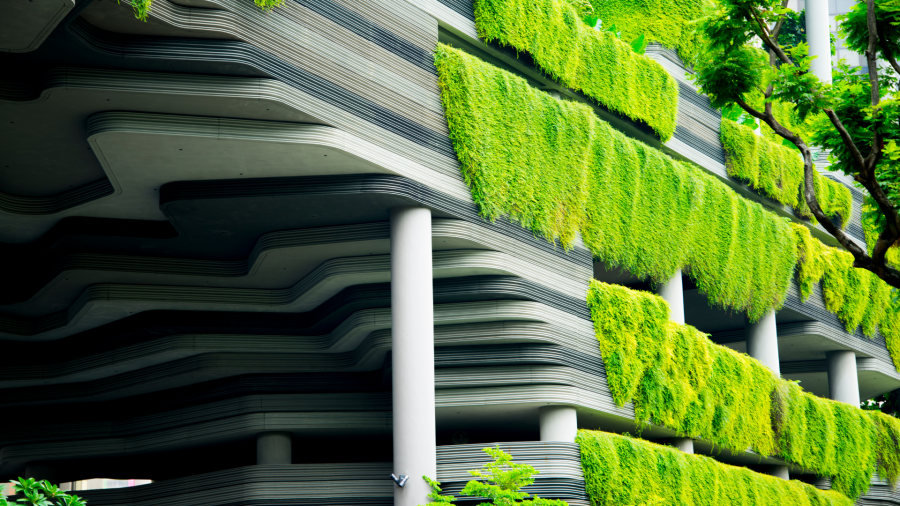Building a Greener Future: Environmental Benefits of Adopting MMC in Urban Development

Urban development is at a crossroads where the need for sustainable practices meets the demand for rapid construction. Modern Methods of Construction (MMC) have emerged as a solution to this challenge, allowing for a more eco-conscious development of the urban landscape. This article will explore the environmental challenges of urban development and how MMC can help build a greener future.
The Environmental Challenges of Urban Development
Urban development poses many environmental challenges, compelling the need for sustainable and efficient construction methods. The challenges include:
· Air Pollution: Traditional construction processes contribute to increased air pollution due to dust, emissions from heavy machinery, and construction material production.
· Resource Depletion: Conventional construction often relies on resource-intensive practices, depleting raw materials and exacerbating environmental degradation.
· Waste Generation: Traditional methods generate vast amounts of construction waste, contributing to landfill issues and environmental strain.
· Traffic Congestion: Urban construction projects can intensify traffic congestion, leading to increased fuel consumption and emissions.
· Energy Consumption: Traditional construction processes typically demand high energy consumption, contributing to greenhouse gas emissions and environmental impact.
· Biodiversity Loss: Urban development may encroach upon natural habitats, leading to biodiversity loss and disruption of ecosystems.
· Heat Island Effect: Dense urbanisation contributes to the heat island effect, raising city temperatures and impacting local climates.
· Water Usage: Traditional construction may involve excessive water usage, putting pressure on local water resources and affecting ecosystems.
MMC offers a sustainable solution to these challenges. By minimising waste through precision manufacturing, utilising eco-friendly materials, and streamlining construction processes, MMC reduces environmental impact. The offsite construction approach also minimises onsite disruptions, lowering pollution and traffic congestion. Embracing MMC in urban development becomes crucial to fostering environmentally conscious and resilient cities.
Reduced Carbon Footprint
MMC inherently contributes to a significant reduction in carbon emissions compared to traditional construction. Offsite fabrication allows for meticulous planning, precision engineering, and efficient material use, reducing waste and energy consumption. As urban areas grapple with air quality challenges and environmental impact, adopting MMC becomes a strategic move towards a greener, cleaner future.
Minimal Site Disruption
Urban environments are often characterised by limited space and high population density. MMC minimises onsite disruption, as the majority of construction activities occur offsite. This alleviates the strain on traffic and infrastructure and reduces noise and dust pollution. The seamless integration of MMC into urban development ensures the continual flow of existing activities during construction, which benefits individuals, businesses and public services.
Resource Efficiency
MMC promotes resource efficiency through streamlined manufacturing processes and the use of sustainable materials. The controlled environment of offsite construction allows for the optimisation of resources, with materials sourced responsibly and utilised with precision. In an era where responsible resource management is paramount, MMC facilitates the creation of urban spaces that prioritise environmental goals.
Energy Efficiency in Operation
Beyond the construction phase, buildings constructed using MMC often exhibit superior energy efficiency in operation. The precision engineering and quality control inherent in offsite construction contribute to structures with enhanced thermal performance. As urban areas strive for sustainability, MMC's long-term energy savings are crucial in achieving environmentally conscious urban development.
Biodiversity Preservation
Urbanisation often leads to habitat loss and fragmentation, impacting local biodiversity. MMC allows for more thoughtful and ecologically sensitive development. The reduced need for extensive onsite construction preserves green spaces and existing ecosystems. By minimising the ecological footprint of urban development, MMC becomes a catalyst for biodiversity preservation in the heart of cities.
Water Conservation
Water scarcity is a growing concern in many urban areas. MMC practices, with their emphasis on precision and efficiency, extend to water conservation. Offsite construction minimises water usage compared to traditional methods, where onsite activities often require substantial amounts of water. Embracing MMC in urban development aligns with sustainable water management practices, contributing to the resilience of cities in the face of water-related challenges.
Adaptability to Climate Change
As cities grapple with the impacts of climate change, the adaptability of urban structures becomes paramount. MMC provides a flexible and resilient approach to construction. The modular nature of offsite components allows for easier modifications and upgrades, ensuring that urban spaces can evolve to meet changing climate conditions. This adaptability is a key asset in constructing urban environments that are not just sustainable but also climate-resilient.
Accelerated Urban Transformation
The urgency of addressing urban challenges calls for accelerated transformation. MMC stands out as a catalyst for swift urban development without compromising sustainability. The time saved in construction due to offsite fabrication translates to quicker urban regeneration and the implementation of green infrastructure. This agility in urban transformation positions MMC as a driving force in building sustainable and environmentally conscious towns and cities.
Conclusion
The adoption of MMC in urban development represents a transformative step towards a greener future. From reduced carbon emissions to enhanced adaptability in the face of climate change, the environmental benefits of MMC align seamlessly with the evolving needs of urban environments. As cities strive for sustainability, integrating MMC becomes not just a choice but necessary for building a thriving and ecologically responsible urban landscape.